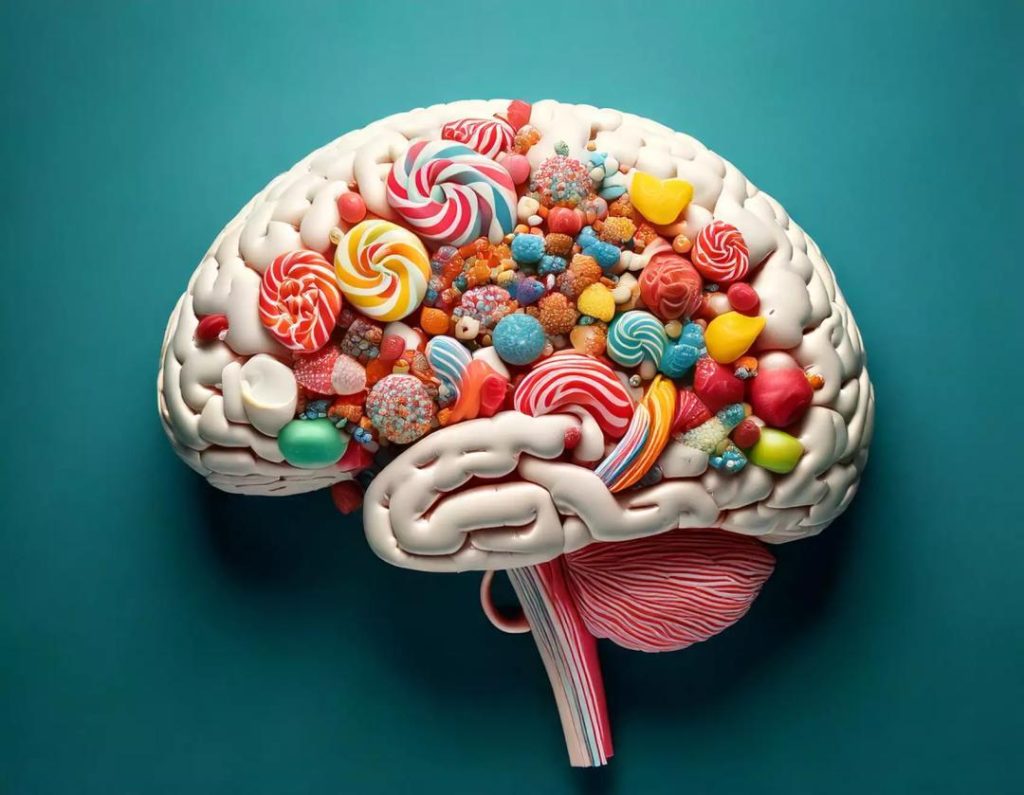
What is “Dessert Stomach”?
Have you ever felt like you just can’t get enough of that sweet, sweet taste even after you’ve eaten a full meal? You’re not alone. Many of us have experienced the phenomenon known as “dessert stomach,” where the craving for sugar becomes overwhelming, making it impossible to resist the temptation of a sweet treat. But what exactly is “dessert stomach,” and what triggers this seemingly irresistible urge?
In recent years, researchers have made significant progress in understanding the science behind sugar cravings. A study conducted by the Max Planck Institute for Metabolism Research revealed that the brain’s hypothalamus plays a crucial role in regulating our desire for sugary foods. The study found that specific neurons in the hypothalamus, known as POMC neurons, are responsible for controlling our food intake and releasing β-endorphins, which stimulate sugar cravings even when we’re full.
So, what happens when these POMC neurons are activated? According to the researchers, when we eat, our brain receives signals from our stomach and small intestine, which trigger the release of hormones that help regulate our appetite. However, when we’re full, these hormones typically switch off, and our appetite decreases. But in the case of “dessert stomach,” something different is happening.
The study suggests that when we’re full, the POMC neurons in our brain’s hypothalamus are still active, releasing β-endorphins that stimulate our desire for sugar. This can happen for a variety of reasons, including stress, emotional states, and even certain medications. For example, some antidepressants can increase the release of β-endorphins, leading to increased sugar cravings.
But why do we crave sugar in the first place? There are several theories. One possibility is that our brains are wired to respond to high-calorie foods, such as sugary treats, as a way to ensure our survival. In the past, when food was scarce, our bodies needed to be able to quickly consume as many calories as possible to survive. Today, this response is still triggered, even though we have access to an abundance of food.
Another theory is that our brains are responding to the rapid release of dopamine, a neurotransmitter that plays a key role in reward and pleasure. When we eat sugary foods, our brains release a surge of dopamine, which can create a feeling of pleasure and satisfaction. This can lead to a vicious cycle of craving and consumption, as our brains become addicted to the quick fix of sugar.
So, what can you do if you’re struggling with “dessert stomach”? There are several strategies you can try to reduce your sugar cravings. One approach is to focus on whole, nutrient-dense foods, such as fruits, vegetables, and whole grains. These foods are rich in fiber, vitamins, and minerals, which can help keep you full and satisfied.
Another strategy is to incorporate healthy fats into your diet, such as avocados, nuts, and seeds. These fats can help slow down the release of sugar into your bloodstream, reducing the likelihood of a sugar crash and subsequent cravings.
Finally, try to stay hydrated by drinking plenty of water throughout the day. Sometimes, thirst can masquerade as hunger or cravings, so making sure you’re drinking enough water can help reduce your desire for sugary foods.
In conclusion, “dessert stomach” is a real phenomenon that is triggered by the activity of POMC neurons in our brain’s hypothalamus. These neurons release β-endorphins that stimulate sugar cravings even when we’re full, and this can happen for a variety of reasons, including stress, emotional states, and certain medications.
While it may be challenging to resist the temptation of sugary foods, there are several strategies you can try to reduce your sugar cravings. By focusing on whole, nutrient-dense foods, incorporating healthy fats into your diet, and staying hydrated, you can take control of your sugar cravings and develop a healthier relationship with food.
News Source:
https://indianexpress.com/article/explained/explained-health/sugar-sweet-cravings-9850623/lite/






